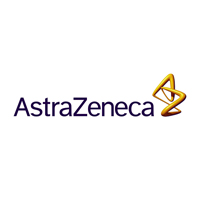AstraZeneca Plc (LON:AZN) today announced that the Phase III OLYMPUS and ROCKIES trials for roxadustat each met their primary efficacy endpoints for the treatment of patients with anaemia in chronic kidney disease (CKD) that are either non-dialysis-dependent or dialysis-dependent, respectively. Roxadustat is a hypoxia-inducible factor prolyl hydroxylase inhibitor (HIF-PHI) and a potential first-in-class new medicine to treat anaemia in CKD being jointly developed and commercialised by AstraZeneca and FibroGen, Inc.
OLYMPUS is a Phase III, randomised, double-blinded, placebo-controlled trial designed to evaluate the efficacy and safety of roxadustat vs. placebo for the treatment of patients with anaemia in CKD stages 3, 4 and 5 whose disease progression is moderate to severe and who are non-dialysis dependent.1 The trial met its primary efficacy endpoint by demonstrating a statistically-significant and clinically-meaningful improvement in mean change from baseline in haemoglobin (Hb) levels averaged over weeks 28 to 52 vs. placebo.1 The trial evaluated 2,781 patients in 26 countries.
ROCKIES is a Phase III, randomised, open-label, active-controlled trial designed to assess the efficacy and safety of roxadustat vs. epoetin alfa, for the treatment of patients with anaemia in CKD who are dialysis dependent.2 The trial met its primary efficacy endpoint by demonstrating a statistically-significant improvement in mean change from baseline in Hb levels averaged over weeks 28 to 52 vs. epoetin alfa.2 The trial evaluated 2,133 patients in 18 countries.
The global Phase III programme consists of more than 9,000 patients in trials conducted by AstraZeneca, FibroGen and Astellas. In September 2018, Astellas announced high-level results from the Phase III ALPS trial. FibroGen and Astellas anticipate reporting high-level results from their remaining trials in due course. These trials will contribute to the combined pooled safety analysis, including major adverse cardiovascular event (MACE) outcomes, anticipated during H1 2019.
Sean Bohen, Executive Vice-President, Global Medicines Development and Chief Medical Officer, said: “These results add to the growing body of evidence for roxadustat, which is part of the largest clinical programme worldwide in evaluating the novel class of HIF-PHI. This is a significant milestone in the role roxadustat can play to help address a high unmet need in anaemia associated with chronic kidney disease, which today is under diagnosed and in many cases under treated.”
Data from the Phase III OLYMPUS and ROCKIES trials, together with the efficacy and pooled safety data from the global Phase III programme, will be part of the regulatory submission package in the US and other major countries. Results from these trials will be presented at forthcoming medical meetings.
About AstraZeneca
AstraZeneca is a global, science-led biopharmaceutical company that focuses on the discovery, development and commercialisation of prescription medicines, primarily for the treatment of diseases in three therapy areas – Oncology, Cardiovascular, Renal & Metabolism and Respiratory. AstraZeneca operates in over 100 countries and its innovative medicines are used by millions of patients worldwide.







































